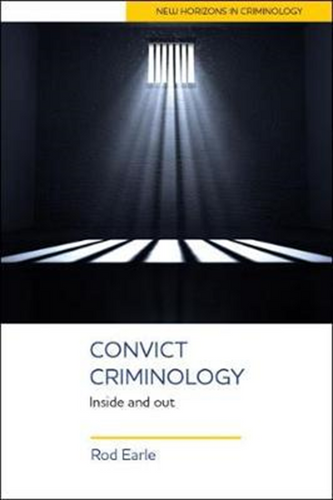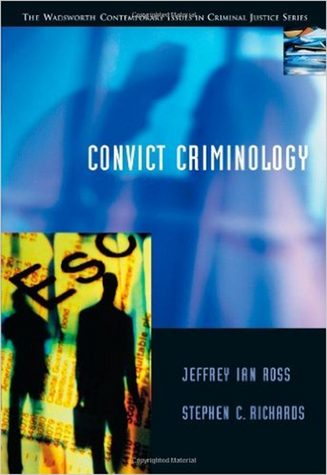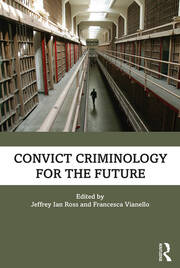
British convict criminology
STRIVING FOR CHANGE IN THE
CRIMINAL 'JUSTICE' SYSTEM
ABOUT
British Convict Criminology (BCC) was established in 2011 after a meeting between Andy Aresti (Westminster University), Rod Earle (The Open University) and Sacha Darke (Westminster University). It is similar to the original US convict criminology group but developed from the recognition that in the UK prison conditions, prison histories, prisoner experiences and universities are very different from those in the USA. As in the USA, convict criminology is based around the principle of combining lived experience of criminal justice with criminological analysis.
This website is dedicated to promoting that work and building support for convict criminology in Britain. The website includes information about what we do and where to find out more about convict criminology.
Prisons, criminology,convictions
A SHORT ESSAY ON CONVICT CRIMINOLOGY IN THE UK
Not so long ago, in the middle of the twentieth century, many criminologists
were saying that there wasn’t much of a future for prisons. In the 1940s
Hermann Mannheim, the UK’s most eminent criminologist, even suggested
“The days of the prison as a method for the mass treatment of law breakers
are largely over”. In the 1960s post-war optimism prompted another
professor, Norval Morris, toward more of the same: “It is confidently
predicted that before the end of the century the prison in its present form
will become extinct”.
Looking back now from the third decade of the 21st century it is clear
these criminologists could hardly have been more wrong. The number of
prisons has grown dramatically, and the number of people sent to prison
has vastly increased. This has been a global trend and one in which the UK
has been an enthusiastic leader, although no country on earth has
managed to keep pace with the United States when it comes to incarceration. The two states that like to think of themselves as leaders of the free world,
are carceral champions, prison addicts. e)
A practical approach to reducing imprisonment – demolishing prisons.
Within the three criminal justice jurisdictions of the UK, England and Wales is the largest
and has the highest rate of incarceration. From a prison population of just below 20,000
people at the beginning of the 20th century, the number of people in prison has risen by
over 400% to more than 85,000 people. More prisons and bigger prisons are being built
and planned. Courts are using longer and longer sentences. At the end of the 1968 there
were only 168 people in prison serving a sentence of more than 10 years. In 2019 there
were more than 18,500. You might want to read those last two sentences again.
For criminologists the only consolation is that as prisons have swelled and multiplied,
so has the discipline of criminology. From being a relatively marginal sociological specialism
for most of the post-war period in the UK, it is now the second most popular social science
option for undergraduates. Only psychology attracts more students. And today’s
criminologists are still trying to unwrap the enigma of the extraordinary growth of
imprisonment, so at odds with the confident predictions of an earlier generation. In 1970s
, the sociologist Laurie Taylor’s astute assessment that “as a group, criminologists look to
have a comfortable future… the demand for criminology seems assured” seems to have
been more ‘on the money’ than either Herman Mannheim or Norval Morris. At
universities, criminology is coining it.
However, for convict criminologists prisons are more than a fascinating and lucrative
academic paradox. They are part of our personal history, the life we have lived. This makes
our work difficult and different. And we must be careful. Prisons seem to thrive on new ideas
about how to make them better places and they feed hungrily on the alternatives reformers
propose. In the US, where convict criminology began and is growing strongly, formerly
incarcerated people are beginning to become more influential in the campaigns against
the US prison industrial complex. Here in the UK, something similar is happening and
some of the people associated with this website have contributed a chapter to the
new edition of the Oxford Handbook of Criminology. The chapter develops critical
arguments about the potential of convict criminology and lived experience of incarceration
to contribute to reducing imprisonment, widening criminology’s horizons and including
more people who have traditionally been excluded from our work, such as women and
racialised minorities in the UK. Due for publication in 2023, we look forward to helping
convict criminology grow and prisons shrink.
OUR PRINCIPLES
1. Promote critical perspectives that seek radical reform, or even abolition, of criminal justice systems.
2. Linking with campaigns, organisations and other activism around prisoner’s experiences, prisoner’s families and post-release issues.
3. Support prisoners and ex-prisoners in establishing themselves as academics in criminology and similar disciplines
Get
People involved in BCC


Dr Rod Earle
Rod is a senior lecturer in youth justice in the Dept. of Health, Wellbeing and Social Care at The Open University.


Chun Hei Kim
Communications Specialist
Dr bill davies
Bill is a Senior Lecturer in Criminology at Leeds Beckett University, a position he has held since 2012.



dr David Honeywell
David currently teaches criminology at Arden University and work as a research assistant at the University of Manchester.



ed Schreeche-Powell
Ed holds a 1st Class BSc (Hons) in Criminology and Psychology from The Open University and an MA with Distinction in Criminology from The University of Kent.

Danica Darley
Danica did both her undergraduate degree in Sociology and Criminology and her MA in Social Research Methods at the University of Sheffield where she is currently in the 2nd year of her PhD.
why we exist
The idea of convict criminology is to combine first hand experiences of criminal justice, and particularly imprisonment, with robust academic knowledge and research training. Implicit to this approach is the need to support students and emerging scholars to develop criminological accounts of such experience. Imprisonment is taken to be a particularly significant experience because prisons crystallise the various social features of the criminal justice system into its most powerful, recognisable and iconic form – the prison. Imprisonment is the end-point of all the social processes around which the criminal justice system and punitive morality condense.
Our published work expands on these principles to widen criminological horizons and include more of those people who have historically been excluded from the discipline.
publications
Books

subheading 1
Add a short description
subheading 2
Add a short description
subheading 3
Add a short description
books

subheading 1
Add a short description
subheading 2
Add a short description
subheading 3
Add a short description
publications
Please feel free to contact us(see contacts page for details) or the authors for copies if any of the articles below are behind a paywall.
Article
Aresti, Andreas. 2014. Contraction in an age of expansion: A convict perspective. The Prison Service Journal, 211, 19 – 25.
This article discusses the growth of the prison population and prison estate in the UK in recent years, and the government's drive to continue this trend of expansion. It considers the context of declining financial resources and services, as well as the decline in rehabilitative interventions and resettlement strategies. The article questions the drive for expansion, contextualising this within the notion of the prison industrial complex
article
Aresti, Andreas. 2012. Developing a Convict Criminology Group in the UK. Journal of Prisoners on Prisons, 21, 1 and 2, 2012.
This article explores the idea of developing Convict Criminology in the UK. First, it contextualises the author’s experience of post-prison life and his journey into academia, providing the foundations for the argument as to why it is instrumental to develop Convict Criminology in the UK. Considering the current state of the criminal justice system in the UK, the author draws parallels with the USA, arguing there is a clear need for a distinct Convict Criminology network in the UK.
article
Darke, Sacha, and Andreas Aresti. 2016. Connecting prisons and universities through higher education, Prison Service Journal, 266: 26-32
This article's focus is on programs the British Convict Criminology is developing to support prisoners studying in higher education. It focuses on two programs - an academic mentoring scheme and a project in which students at a London university study a Convict Criminology course with students at a local prison.
publications
Article
Davies, Bill. 2015. Unique position: Dual identities as prison researcher and ex-prisoner in D. Drake, R. Earle and J. Sloan (Eds.) The Palgrave Handbook of Prison Ethnography, Basingstoke, UK: Palgrave.
Conducting research into young men’s experiences of custody, the author discloses his own and thereby creates a unique possibility of reciprocal exchange. This approach can facilitate a rapport between researcher and prisoner that is unavailable to the more conventional prison researcher. It can create new potentials in prison research, although trust and identification can never be assumed or taken for granted.
article
Earle, Rod. 2017. Being Inside – penal interiors and masculine imaginaries’ in Maycock, M. and Hunt, K (Eds.) New perspectives on prison masculinities, Basingstoke UK: Palgrave.
Written from personal experience of imprisonment and extended ethnographic research in two English men’s prisons, the author considers the way in which men make sense of prison experience. Connecting social theory about the imaginary constitution of society with the lived reality of incarceration, new insights on penal practice and social contracts are generated.
article
Earle, Rod. 2014. Insider and out: Reflections on a prison experience and research experience, Qualitative Inquiry, 20(5) pp. 429–438.
This article advances speculative connections between the experiences of incarceration, prison research and the academic career of the author. It considers how prisons and universities are two key institutions in the reproduction of a certain kind of social order. It draws from extended immersion in two English men’s prisons and personal experience of incarceration. It is a reflexive analysis of the ways in which such experiences can be combined to develop the potentials of convict criminology.
publications
Article
Earle, Rod (2018). Convict Criminology in England: Developments and Dilemmas. British Journal of Criminology, 58(6) pp. 1499–1516.
This article is based on interviews conducted with people in the UK who are active in British criminology and have served prison sentences but not all of whom identify with convict criminology.
article
Earle, Rod and Davies, Bill (2020). Glimpses across 50 years of prison life from members of British Convict Criminology. Prison Service Journal(250) pp. 13–19
This article was awarded 'Outstanding Article of 2020 by the editorial board of the journal.
article
Earle, Rod (2021). No Cell for the Soul: Prison, Philosophy and Bernard Stiegler - A Short Appreciation. Journal of Prison Education and Reentry, 7(2)
This article was awarded Best Article of 2021 by the editorial board of the journal.
publications
Article
Earle, Rod (2021). Doing Time for Convict Criminology. In: Ross, Jeffrey Ian and Vianello, Francesca eds. Convict Criminology for the Future. UK: Routledge.
article
Honeywell, D. (2019) Ex-prisoners and the transformative power of of Higher Education, in Earle and Mehigan, (eds) Degrees of Freedom, Prison Education and The Opern University, Bristol University Press.
article
Micklethwaite, Daniel and Earle, Rod (2021). A Voice Within: An Autoethnographic Account of Moving from Closed to Open Prison Conditions by a Life‐Sentenced Prisoner. The Howard Journal of Crime and Justice
This article was published in the 100th anniversary year of The Howard Journal, the UK's oldest journal relating to penal issues. It was the first to be authored by a serving prisoner.
contact us
contact us
Dr Rod Earle
rod.earle@open.ac.uk
c/o Dr Rod Earle, School of Health Wellbeing and Social Care, The Open University, Milton Keynes MK7 6RR
(please note mail is not checked frequently)
Danica Darley
djmdarley1@sheffield.ac.uk
Danica Darley, Department of Sociological Studies, The University of Sheffield, Northumberland Road, Sheffield,
S10 2TU
@BritishConvict
